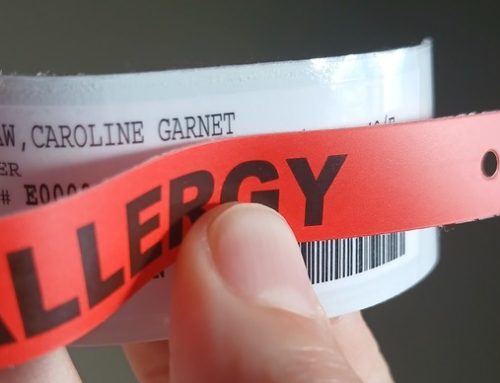I spent my first couple of decades trying to be the best person I could possibly be. She was always someone who wasn’t me. This was the cause of 90% of my stress, suffering, and time scarcity: the deep-seated belief that who I was, wasn’t good.
I had to prove myself again and again; I was a textbook insecure overachiever. The overwork and overgiving … it was all a compensation for the original sin of being me.
Fortunately, I took an unusual career path post-college. Instead of heading for a high-flying career in publishing, I decided to go live and work at L’Arche Greater Washington DC.
L’Arche (French for “the ark”) is a nonprofit organization that creates homes where people with and without intellectual and developmental disabilities live together in community.
And while I worked hard at L’Arche, it was also a place where my exhausted heart finally got some rest. Where I learned to stop striving so much, and just be present. I’ll never forget one summer afternoon when I was charged with the care of one of my new housemates, who I’ll call Vincent.
Vincent was an elderly gentleman who wasn’t in a hurry. That afternoon, he wanted to hang out on the porch and just…be. At the time, just “being” was very uncomfortable for me. Shouldn’t I be doing something? Achieving more?
When I sprang up to refill Vincent’s water bottle, he told me, kindly but firmly, “No, dear. You rest. You just stay right where you are and rest.”
Those words brought tears of relief to my eyes. I didn’t know, until that moment, just how much I needed to hear them.
Dear reader: What would it feel like to stay right where you are and rest? If that concept is both compelling and terrifying, read on.
What is an insecure overachiever?
An insecure overachiever is someone who’s accomplished and competent on the outside, all while feeling uncertain and shaky on the inside. It’s someone who works hard to prove their worth, while constantly doubting that they’re good enough.
Oliver Burkeman describes it well in Meditations for Mortals:
“[The term] ‘insecure overachievers’… is a diplomatic way of saying that our accomplishments, impressive as they may sometimes be, are driven ultimately by feelings of inadequacy.
For example, maybe you believe that you’ll have earned your right to exist only when you attain a certain level of social standing, or income, or academic qualifications.
Or perhaps you’ve tethered your self-esteem to the most crazy-making standard of all, ‘realizing your potential’ – which means you’ll never get to rest, because how can you ever be sure there’s not a little more potential left to realize?”
An insecure overachiever is smart, capable, and secretly suffering.
Do overachievers have low self-esteem?
Do overachievers have low self-esteem? Many do, but ultimately it depends on your motivation.
- If you’re achieving because it feels good to you – if your achievements come from a sense of intrinsic motivation – then that’s not a self-esteem issue.
- If you’re achieving because you feel you must, because you fear that you would lose your worth and value if you didn’t — then that’s a self-esteem issue.
Often my overachieving coaching clients describe a kind of void within themselves, a gaping hole where their self-worth ought to be. This is actually a developmental injury.
In childhood, they didn’t get the tools and materials necessary to build a strong internal foundation, so as adults, their confidence is fragile. If they fail, there’s no “bottom” to the failure; the shame just goes on and on.
Think of Luisa Madrigal in Encanto: she has tremendous physical strength and copes with constant pressure to perform, yet she’s also deeply insecure. (“I’m pretty sure I’m worthless if I can’t be of service.”)
Insecure overachievers like us overwork and overgive, because it’s hard for us to know what’s good enough, much less to stop there. Instead of resting and playing, we push harder, punishing ourselves for not being all things to all people.
It’s tough for us to embrace our limitations and our finitude. To say, “Here’s where I end; here’s where you begin. Here’s what I have to give, and here’s what I’m not willing to give.”
This makes sense, because at some point in our lives we learned that it really wasn’t safe to say that. It wasn’t safe to have limits or boundaries, to need a break or a breather. We learned to carry on no matter how badly we were feeling.
In a strange way, the better we do on the outside — the more awards and accolades we receive — the worse we feel on the inside. Why? Because the more success we have, the bigger the disconnect between how things appear and how things actually feel.
In this interview with Jenna Banks, I talk about how growing up in a doomsday cult set me up to live as an anxious overachiever – and what helped me start healing.
What is an anxious overachiever?
If you’re an anxious overachiever, chances are you also have imposter syndrome. Despite your myriad achievements, you probably feel like a fraud.
Living with imposter syndrome feels like sliding around in shoes that feel too big for you. But you don’t take them off, and your feet don’t grow. You just keep moving through life feeling like you’re one step away from disaster.
The funny thing about imposter syndrome, though, is its pervasiveness. Of the hundreds of capable, competent adults I’ve coached, most have told me that they feel like fakes. Despite ample evidence to the contrary, they don’t feel like real adults.
This leads me to believe that imposter syndrome is a systemic issue. If so many of us walk around believing that we’re not good enough, who wins? Who benefits from us believing that BS?
If you struggle with imposter syndrome, ask yourself, “Who, exactly, told me that I couldn’t do XYZ? Who am I listening to, who am I believing right now?” Let’s not let the bullies and the narcissists decide what we can and can’t do.
I know it’s not easy to grapple with this issue in real time, so let me tell you my favorite imposter syndrome story.
In one of my first paid speaking gigs back in the day, I was one of three keynote presenters at an regional Autism Society gathering in California.
My talk was designed to speak to the sibling experience, and what it’s like to be a “glass child” (a “normal” / neurotypical sibling who becomes invisible in the strained family system).
On the big day, I met the other two presenters. Both were older men; one was a doctor and one was an academic. They were both far more “qualified” to speak, with letters behind their names. I was sweaty and intimidated!
The first presenter was the academic. He was very knowledgeable … and very much not connecting with the audience. I noticed parents and professionals alike forcing themselves to stay awake through the presentation.
I was up next, and the event organizer pulled me aside before I took the stage. She said something to the effect of, “Please help! We need you to liven things up!”
The funny thing was, by then I knew that that I could do it. I’d seen the error in my beliefs, and I wasn’t afraid anymore.
You see, I’d assumed that because those men had more credentials than I did, they would be better speakers. But being qualified to speak isn’t just about academic degrees or career achievements. It’s also about lived experience, empathy, and the ability to understand your audience.
And by those measures, I was confident. Most of the people in that room were family members of people on the autism spectrum. I’d lived in that world almost my entire life, and I knew that I could connect to those people.
I walked on that stage feeling the usual butterflies, but also, a deep knowing that I had a right to be there. I had stories of value to offer, I could serve them well. And I did, leaving the stage to enthusiastic applause.
So if you’re an anxious overachiever struggling with imposter syndrome, hear this: Please, don’t just focus on what you lack. Remember the riches you take for granted. Remember the treasures of experience and empathy, and the ability to connect from the heart.
When we remember, we feel a sense of expansion. When we forget, we slouch our way through our days, ashamed. We don’t stand to our full height. And over time, we forget what’s real.
In the wise words of my old physical therapist, “Walk like you’re one inch taller.” Enjoy that feeling of lightness and expansion. Not because it’s a lie, but because it’s the truth.
You are already bigger and braver than you give yourself credit for. Once you stop playing small, you’ll notice: your shoes actually fit just fine.
How do we recover from insecure overachievement?
As insecure overachievers, we’re so used to pleasing and performing and overfunctioning, it’s hard for us to consider slowing down — even though we’re also burnt out, yearning to rest and recover.
We might also avoid taking a closer look, because we fear that trying to change will take too much energy … and we don’t have energy to spare!
Here’s the good news about healing, though: We actually don’t need to spend a lot of time and energy trying to stop the overwork and overgiving. Why not? Because those patterns are just the symptoms of a deeper problem.
The more efficient way to heal is to turn our attention to the underlying core issues: the unprocessed anger, trauma, grief, and hopelessness, often caused by covert abuse. When we know how to heal those core issues, our coping mechanisms fall by the wayside.
Here’s the concept in a nutshell: “When we apply love to the parts of ourselves that hurt, we heal.”
That’s been my experience, at least. But the concept doesn’t do much good unless you apply it. And how the heck do you go about reparenting yourself now, in the middle of your high-demand life?
To quote one coaching client: “How do I shift my mindset and focus more time and energy on myself (aka love myself first) when I feel such high demand to enable my disabled son have a happy life now and after I’m gone?”
This woman isn’t alone; my coaching clients tend to have intense jobs (think doctors, nurses, and therapists). They’re the helpers. Often they also have significant caregiving responsibilities; they’re raising kids, perhaps, or supporting family members with disabilities.
They’re so good at helping that they keep getting more responsibilities. And as the responsibilities pile on, the pressure mounts. So much to juggle, so little time.
And yet … there’s still this yearning. There’s this feeling of life tugging at their sleeves, pointing them in a new direction. Go here! Make this creative project! Start that business! Pursue that path!
If this is you, then you know what comes next: we stop ourselves. We rule out the yearning. The limiting story goes that we cannot possibly care for ourselves while fulfilling our responsibilities.
So we self-sacrifice yet again. That’s what a good person does, isn’t it? But trying so hard to be “a good person” is making us miserable.
So what’s the antidote? The very first thing we need to do is open up some time and space to recover.
I love how Heather Havrilesky explains her own recovery process in her column, I Work Too Hard and I’m Still Poor and Miserable!:
“This is what it boiled down to for me: You have to stop wanting to be heroic and impressive, and you have to start wanting to feel good.
You have to stop wanting to be better for everyone else and start wanting to be good to yourself. And you have to believe that you deserve that.
Treat this like an emergency. That’s what I did. I asked, “Do I really want to feel sick and stressed out all the time? Do I really want to spend the rest of my life feeling like I’m always falling behind?” And I knew I would feel horribly self-indulgent once I slowed down.
So I learned to tolerate that and learned to say, “The most important thing is that you’re happy. That’s what matters every day.”
Like Havrilesky, I spent my first few decades trying to be the best person I could possibly be. She was always someone who wasn’t me. This was the cause of 90% of my stress, suffering, and time scarcity: the deep-seated belief that who I was, wasn’t good.
I had to prove myself again and again; hence, the overwork and overgiving. It was all a compensation for the original sin of being me.
But finally, I had enough. I turned the whole thing on its head.
I created the Sacred Circle process, a way of structuring your life around what’s most deeply true for you and who you actually are. This process has helped my coaching clients save years of their lives and tens of thousands of dollars.
Just this week, I heard from two clients who used this process to great effect.
One was offered a prestigious job that she would have taken in the past, because she “should” want it. Turns out, she didn’t! She said yes to a position much more in line with who she is.
Another client received a great job offer – for the kind of job she already has. Thing is, she’s already headed down a new career path.
Instead of being the “good girl” and saying yes, she asked about other opportunities more in line with her new direction.
Remember: “Just because you can doesn’t mean you should.”
Enter your email address below to receive the Sacred Circle Exercise; this is a super-practical way to free up time and start healing the core issues that drive insecure overachievement.
Free Up Time to Pursue Your Purpose with the Sacred Circle exercise!
Share This:
Comments
Related Posts


